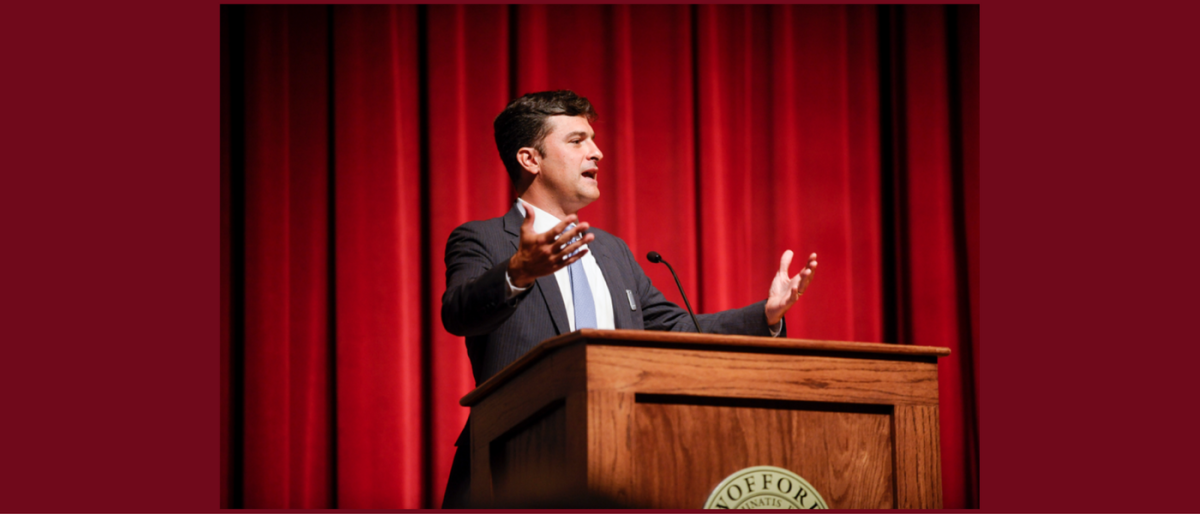By: Katie Sanders, Editor-in-Chief
On Tuesday, Sept. 20, New York Times reporter Mark Mazzetti spoke at Wofford on what he calls the ‘shadow wars.’ These wars have been fought, in secret, by the CIA and military in places like Pakistan, Yemen and the Horn of Africa since the events of 9/11. Mazzetti argued that due to advancements in technology and the blurring of lines between the work of the CIA and the work of the military, the government is able to wage these wars in secret, thus bypassing the necessary step of public discourse.
“What I don’t think there has been enough of in this election season is a discussion on how the U.S. should be operating overseas, including the CIA and special intelligence,” said Mazzetti. He argued that this is important because the next president will inherit the new model of warfare our military and special intelligence have created over the past ten years, and how they use it is of the upmost importance.
“The new president will inherit a world that is seemingly unraveling at the seams,” he said. “The American president now has the authority and technology to hunt down any person in the world and kill them. The question is, will they use it? Will they be seduced by this new model of warfare?”
As far as the covertness of these shadow wars that have been fought out of the public eye, Mazzetti chalked that up to the military’s and CIA’s new pattern of working together. “Over the last 15 years, the Pentagon has come to look more like the CIA and the CIA has come to look more like the Pentagon,” he said. At times, a soldier and a spy do not look too different anymore. This makes it easy to carry out clandestine military operations around the globe. The appeal of this type of warfare is that it seems cost-free, but Mazzetti argued that no loss of human life is cost-free, foreign or domestic.
He also called attention to the new language surrounding war, referring to it as a “new catalog of Euphemisms.” President Obama continually told the American public that there would be no more American “boots on the ground” in Syria, but Mazzetii said the only thing that changed was what the military called the units they were sending. There may not have been any more ‘soldiers’ being deployed, but there was an influx of ‘specialists’ and ‘trainers’ being deployed; which, according to Mazzetti, is boots on the ground called by a different name.
Mazzetti’s reporting on violence in Pakistan and Afghanistan won him the Pulitzer prize in 2009. He also authored the book The Way of the Knife: The CIA, a Secret Army and the War at the Ends of the Earth. He began his career in journalism reporting on the Pentagon as the Washington D.C. correspondent for the Los Angeles Times. He also worked for U.S. News & World Report and The Economist before beginning his career with the New York Times in 2006.






























